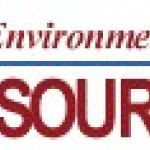- Industri: Government
- Number of terms: 3992
- Number of blossaries: 2
- Company Profile:
The pressure, often expressed in millimeters of mercury (mm Hg) or pounds per square inch (PSI), that is characteristic at any given temperatures of a vapor in equilibrium with its liquid or solid form.
Industry:Pollution control
The prescribed level of a pollutant in the outside air that should not be exceeded during a specific time period to protect public health. Established by both federal and state governments. (See also ambient air quality standards. ) For more information please see our ambient air quality standards webpage.
Industry:Pollution control
The planned application of fire to vegetation to achieve any specific objective on lands selected in advance of that application. In California, prescribed burning is governed under the Agricultural Burning Guidelines.
Industry:Pollution control
The pollutant concentration used by air quality managers as the basis for determining attainment of an air quality standard, generally by using an air quality model. The design value may or may not be the same as the designation value.
Industry:Pollution control
The number of potential excess cancer cases from a lifetime exposure to one microgram per cubic meter (µ/m<sup>3</sup>) of a given substance. For example, a unit risk value of 5. 5x10<sup>-6</sup> would indicate an estimated 5. 5 cancer cases per million people exposed to an average concentration of 1 µ/m<sup>3</sup> of a specific carcinogen for 70 years.
Industry:Pollution control
The outermost layer of the Earth's atmosphere extending from about 60 miles to several hundred miles. The temperature of this layer varies from many hundreds to thousands of degrees Celsius.
Industry:Pollution control
The periodic or continuous sampling and analysis of air pollutants in ambient air or from individual pollution sources.
Industry:Pollution control
The most up-to-date methods, systems, techniques, and production processes available to achieve the greatest feasible emission reductions for given regulated air pollutants and processes. BACT is a requirement of NSR (New Source Review) and PSD (Prevention of Significant Deterioration). For more information, please go to our BACT website.
Industry:Pollution control
The most effective emission limitation or control technique which (1) has been achieved in practice for such permit unit category or class of source; or (2) is any other emissions limitation or control technique, including process and equipment changes of basic and control equipment, found by the Executive Officer of the California Air Resources Board or Air Pollution Control Officer of the local districts to be technologically feasible for such class or category of sources, or for a specific source.
Industry:Pollution control
The miles traveled by motor vehicles over a specified length of time (e. G. , daily, monthly or yearly) or over a specified road or transportation corridor.
Industry:Pollution control
